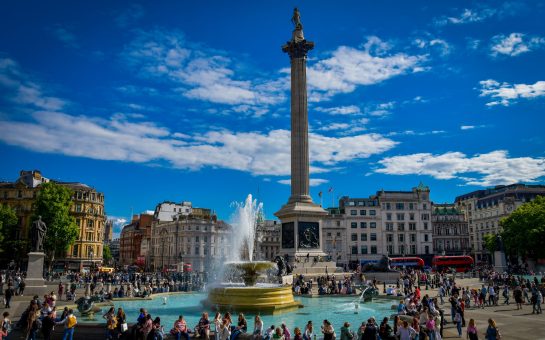Tory Councillor Matthew Maxwell Scott recently claimed the proposed re-introduction of the EMA is a cynical attempt to gain votes by Ken Livingstone.

Ken Livingstone’s proposed re-introduction of the Educational Maintenance Allowance (EMA) is no more than a cynical attempt to gain votes, claimed a Wandsworth Tory Councillor.
Conservative Councillor Matthew Maxwell Scott voiced his criticism of the proposal at a recent Wandsworth Council meeting, where he called Labour’s EMA scheme ‘dole for kids’.
Mr Livingstone has outlined the restoration of a London-wide EMA scheme as one of his six key pledges if he is voted back into office when the Mayoral election is held in May.
EMA was introduced under Labour in 2004/05 with funding of up to £30 a week available to youngsters living in households earning £33,950 and under.
While Cllr Maxwell Scott considers his description of EMA as ‘dole for kids’ a glib remark, he insists EMA did not work and believes Mr Livingstone will not be able to fund the re-introduction of the scheme.
He said: “I think it’s really cynical. If you were someone who doesn’t get EMA now but Ken Livingstone’s promising you’re going to get it, then I think it’s very troubling because you’re not going to get it. That won’t happen.”
Cllr Maxwell Scott also said there were a number of fundamental problems with the EMA scheme.
“It was a blunt instrument,” he said. “It was actually given to almost half of all sixth formers.
“You could have a household income of £30,000 to qualify for a degree of EMA, which doesn’t suggest to me particular hardship.
“It also suggested to young people that there was no intrinsic value to education that going to college or school is simply something to be endured in exchange for a weekly cash payment.
“I think it’s deeply troubling that state dependency could be fostered at such a young age.”
He also refutes claims EMA encouraged students to take their studies more seriously, as is often argued by those favouring the scheme.
“The statistics suggest that of those who got EMA before, 90 percent stayed or said they would stay in full-time education anyway,” he said.
The EMA scheme was controversially scrapped by the coalition government last year to be replaced by the more cost-effective 16 to 19 Bursary Fund.
As with EMA, the bursary scheme is conditional on the student meeting the expected standards of attendance, behaviour and quality of work.
The new scheme, which is made up of a bursary of £1,200 a year to the most vulnerable young people and a discretionary fund for schools and colleges to distribute, will be given to around 12,000 16-19-year-olds.
Cllr Maxwell Scott believes the 16 to 19 Bursary Fund is specifically targeted at those who need it most.
He said: “EMA has been replaced by a scheme that, while the overall cost for it is lower – which it has to be because of the debt the government inherited – actually targets those who are generally most in need.
“It comes to £180million all told, rather than EMA, which was nearer £560 million a year.”
Labour Councillor Leonie Cooper, who took issue with Cllr Maxwell Scott’s ‘dole’ remark at the Wandsworth Council meeting, said if the bursary was working then no one would be talking about EMA anymore.
She said: “I think EMA enabled some students to undertake their studies at all.
“I know that some students spent it on travel costs, some on books – and some even on food.”
Mr Livingstone plans to work with colleges, universities and local authorities to pool together existing resources and re-create EMA if he is re-elected.
Paul Bishop, Director of Sixth Form at Saint Cecilia’s, Wandsworth Church of England School, argues EMA provided a crucial means of support for students.
Mr Bishop said: “It helps prevent our least well off students from being disadvantaged by their social-economic status.
“There is strong evidence to suggest that social economic status is the number one factor in achievement in education.”
Follow us on Twitter @SW_Londoner




